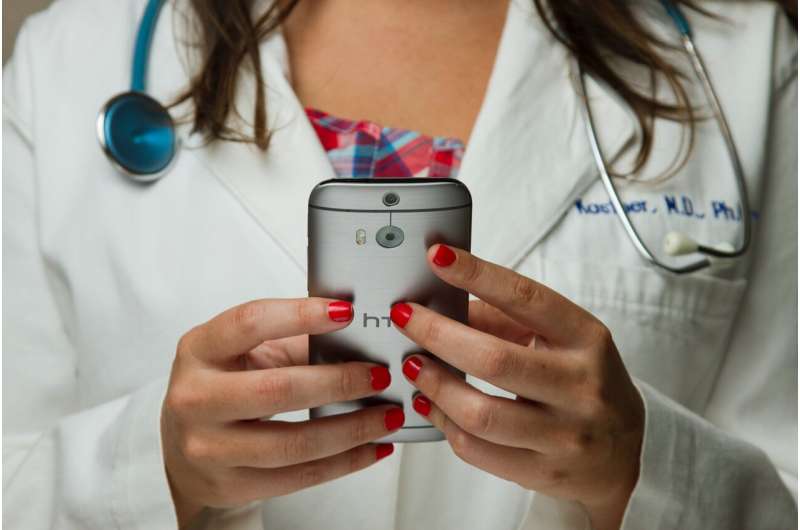Telehealth enabled eight Texas nurseries to reduce antibiotic use in newborns by 32%

Telehealth consultations with a pediatric infectious disease specialist at The University of Texas Health Science Center at San Antonio reduced the number of newborns receiving antibiotics by 32% in eight geographically distant nurseries that serve rural and medically underserved areas of South Texas, a recent study shows.
Decreasing antibiotic usage in infants is vital because in addition to treating or preventing infections, antibiotics also kill good bacteria that babies need to ward off gut problems, asthma, eczema and food allergies. Newborns obtain these beneficial bacteria during delivery, through breastfeeding and while being held by both parents.
“With unnecessary or prolonged antibiotics, the normal, healthy bacteria of babies is disrupted,” said pediatrician Joseph Cantey, MD, MPH, first author and consulting specialist for the study from the health science center, also referred to as UT Health San Antonio.
Even a couple of doses matter
“Ten to 15 years ago, we treated all babies with the slightest risk of infection just to be safe,” Dr. Cantey said. “Then we started to understand the protection afforded by these normal bacteria. Now we are trying to be much more select with who needs to be exposed to antibiotics. Even a couple of doses at birth matter.”
The three-year study was published online April 12 in Pediatrics, the journal of the American Academy of Pediatrics.
To understand whether telehealth consultations could improve stewardship of antibiotics in newborns, Dr. Cantey and colleagues first looked at nurseries’ existing rates of usage for 15 months, then phased in centers one at a time over a nine-month period to begin telehealth consults when questions arose. After this, usage rates were studied for 12 months with all centers having the consults available to them 24/7.
Meeting a demonstrated need
“A lot of centers, especially rural centers or centers that are in medically underserved areas, don’t have access to the resources that they need to do stewardship the way they would want to do it for their babies,” Dr. Cantey said.
“Texas is a big state with a significant percentage of the population clustered on the Interstate 35 corridor and in the Houston region,” he added. “Outside of those areas, there is a lot of square footage that is considered medically underserved or rural by the U.S. Agency for Healthcare Research and Quality (AHRQ). Many counties do not have any medical providers. So, Texas is a wonderful state in which to test telehealth for enhancing newborn antibiotic stewardship.”
The centers are not identified in the study report but include hospitals in Cuero, Fredericksburg, Carrizo Springs, Laredo and Del Rio, Dr. Cantey said.
Telehealth crucial to babies, parents during pandemic
The study began in 2018 before the COVID-19 pandemic and proved to be very helpful to the distant nurseries as they navigated coronavirus concerns related to newborns.
“In the pandemic setting, a lot of the questions that were coming through the teleconsultation portal were questions about COVID,” Dr. Cantey said. “What do we do for moms who have the virus? Do we need to separate the babies from the moms? Can the babies breastfeed? Even though nurseries did not necessarily have pediatric infectious disease experts in their towns, they could still reach out and get the support they needed.”
Other consult topics included E. coli and other bacterial infections that babies contract in the delivery process, congenital syphilis, botulism, tetanus, Chagas disease and tuberculosis. “The questions of these providers trying to hold the fort in rural settings were amazingly varied,” Dr. Cantey said. “And every week with COVID, there was a new guideline.”
‘In awe of these hospitals’
The eight nurseries cared for 9,277 babies over the course of the three-year study. The hospitals made a significant commitment to serve these infants and their families by participating.
Source: Read Full Article
